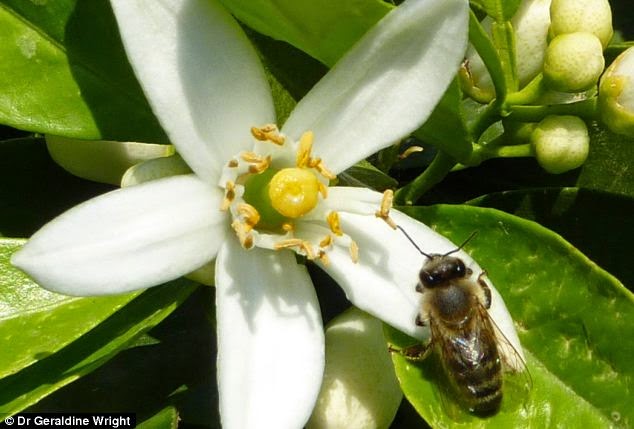Pollinators get a buzz off caffeine, too

Most plants can reproduce asexually – that is, new plant life is created without the need for female and male sex cells to combine. However, amongst plants there is a variety of ways in which they can reproduce sexually. Sexual reproduction confers certain advantages to organisms: for example, by the remixing of sexual cells, more variation is maintained within a population and there are more likely to be some organisms able to withstand environmental changes. Animal-mediated pollination is a common way by which plants distribute their sex cells to other individuals in a population. Plant have evolved a wide variety of mechanisms to increase the likelihood of pollination, including conspicuous flowers, enticing scents, and sweet nectar rewards. Coffea and Citrus are plant genera which both exhibit attractive flowers and produce more fruit and seeds when pollinated by bees (Ricketts, 2004), which they reward with nectar. However, the nectar of species in these genera contain anoth...